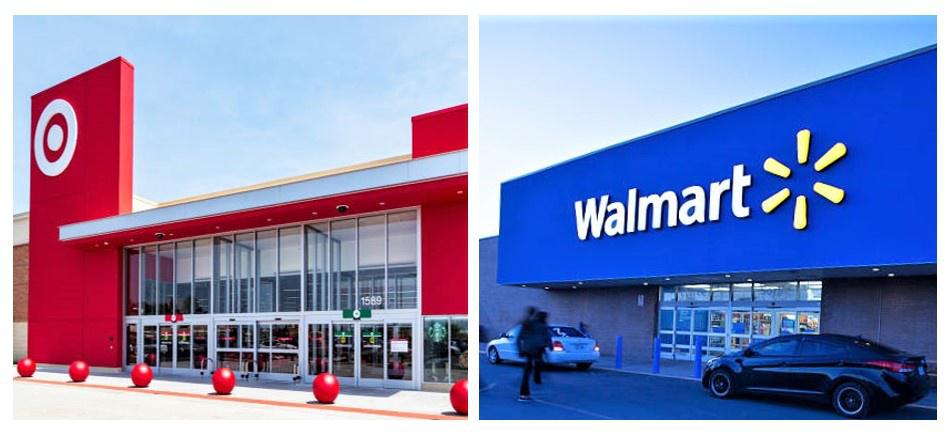
Ahead of next week’s quarterly reporting for discounters Target and Walmart, Placer.ai is reporting … [+]
Major retailers are set to report earnings next week. Walmart
Winner and Near Winner
That said, it does appear that these two superstore superstars have overcome enough supply chain issues to anticipate some great first quarter results, at least based on Placer.ai’s metrics. Both Target and Walmart have shown significant year-over-year traffic increases in the early months of 2022. Target saw an average monthly increase of 6.1% while Walmart lagged slightly behind at 4.9%. For the first four months of 2022, only March saw slight year-over-year drops for both retailers, due to the latest Covid variant spike.
Target saw an average monthly visit increase of 6.1% while Walmart lagged slightly behind at 4.9% … [+]
When comparing both retailer’s early 2022 data to pre-pandemic 2019, a different picture begins to emerge. Here Target is the clear winner, with an average 10.5% increase in store visits for the first four months of 2022. By comparison, Walmart’s monthly visits were down, slightly.
Warning that an uneven playing field still exists, Truist Securities Scot Ciccarelli wrote in a recent report that “Walmart’s exposure to lower-income shoppers who are feeling the pressure of inflation is cause for concern heading into the retail giant’s fiscal first-quarter earnings.”
MORE FOR YOU
Comparing the superstore retailers early 2022 visits to the same pre-pandemic 2019 period, Target is … [+]
Organic Growth
While Target ranks behind Walmart in terms of sheer size, its sales growth has been superior, having increased nearly 50% over the past decade. It has achieved these results organically by opening more stores, improving same-store-sales, continuing to invest in its ever-broadening e-commerce offerings and initiating smart strategic partnerships in areas of both products and services.
One measurable achievement focuses on the “Ulta Effect” which I have reported on in the past. According to Placer.ai the Target + Ulta stores have shown increased year-over-year visits for three of the first-four months of the year.
According to Placer.ai the Target + Ulta stores have shown increased year-over-year visits for three … [+]
Rondel Retail Resale
Target has always been about innovation. They championed “the democratization of design” with their introduction of Michael Graves’ signature designs, over two decades ago. Target has become the “launch pad” for emerging young fashion designers, with their regular boutique collections, and they have been responsible for funding business start-ups through their entrepreneurial Target’s Accelerators Programs.
Now, at a time when the fastest growing segment in retail is “recommerce” Target is throwing in with resale leader ThredUp and offering its “retail as a service” (RaaS) online platform. There have been numerous partnerships born of this this re-merch moment, including Chanel and Farfetch
GlobalData predicts the retail resale industry will grow eleven-times faster than the broader fashion retail sector through 2025, to an estimated value of $77 billion. Resale is expected to eclipse fast fashion by 2028. With this new alliance, Target will be giving its customers access to 400,000 women’s and kids items from Target brands as well as an assortment of ThedUp’s over 2,000 brand offerings.
With Target’s 20.8% 2021 digital sales growth, it is likely that the retailer will notch some profitable resale gains, and in the process offer their guests a “new destination for secondhand style.”







